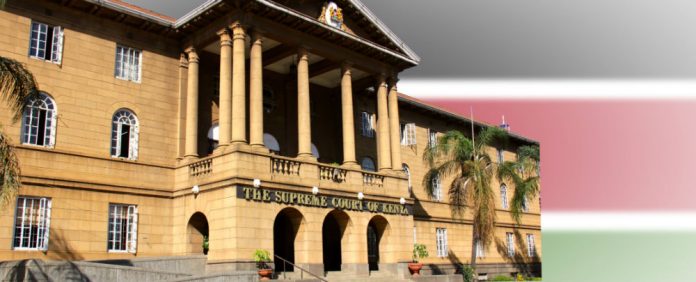The Kenyan Court system is classified into two categories, Superior Courts and the Subordinate Court.
The Superior Courts are the Supreme Court, Court of Appeal, High Court and Environment and Land Court, and the Employment and Labor Court. The subordinate Courts comprise the Magistrate’s Courts, Court Martial, Kadhis Court, Tribunals and Small Claims Courts.
Magistrate’s Court is presided over by magistrates whose ranks range from Chief Magistrate, Senior Principal Magistrate, Principal Magistrate, Senior Resident Magistrate and Resident Magistrate, the lowest rank. Adjudicators preside in the Small Claims Courts.
All these courts have been allocated duties and roles to bear. The Supreme Court has the power to hear and determine disputes arising from the presidential election. The national and county governments can seek advisory opinions, on any constitutional matters, from this court. All appeals from the Court of Appeal, certified as matters of public interest and constitutional interpretation are also determined here.
The Court of Appeal is home to any challenge to a previous legal determination by courts below it, hence the name appeal. Appeals to the Court of Appeal are received from the High Court, the Environment and Lands Court, and the Employment and Labor Court.
The High Court deals with all kinds of cases whether criminal or civil. The High Court hears and determines appeals from subordinate courts. Legal disputes arising from the high seas (beyond Kenya’s ocean boundaries) have a home in this court.
Magistrate’s Court deals with all criminal cases except murder. They also deal with civil cases where the value of the claim or subject matter is above one million but below twenty million. Small Claims Courts deal with civil claims where the value is less than one million.
The Court Martial and the Kadhi’s Court are special in that they serve specific groups of people. The Court Martial is exclusive to men and women in the military, while the Kadhi’s court handles matters of personal law, concerning persons who profess Muslim faith.
Tribunals are specialized dispute resolution bodies that handle specific subject matter disputes. For instance, the Political Parties dispute tribunal hearings and disputes between members of a party or between members of a coalition of a party. The decisions made by the Registrar of Political Parties are also heard in this Tribunal. Other tribunals include the HIV/AIDS, Rent Restriction, Tax appeals, the National Environment, Sports Disputes, Cooperatives, Copyright and the Public Private Partnership Petition Committee.


